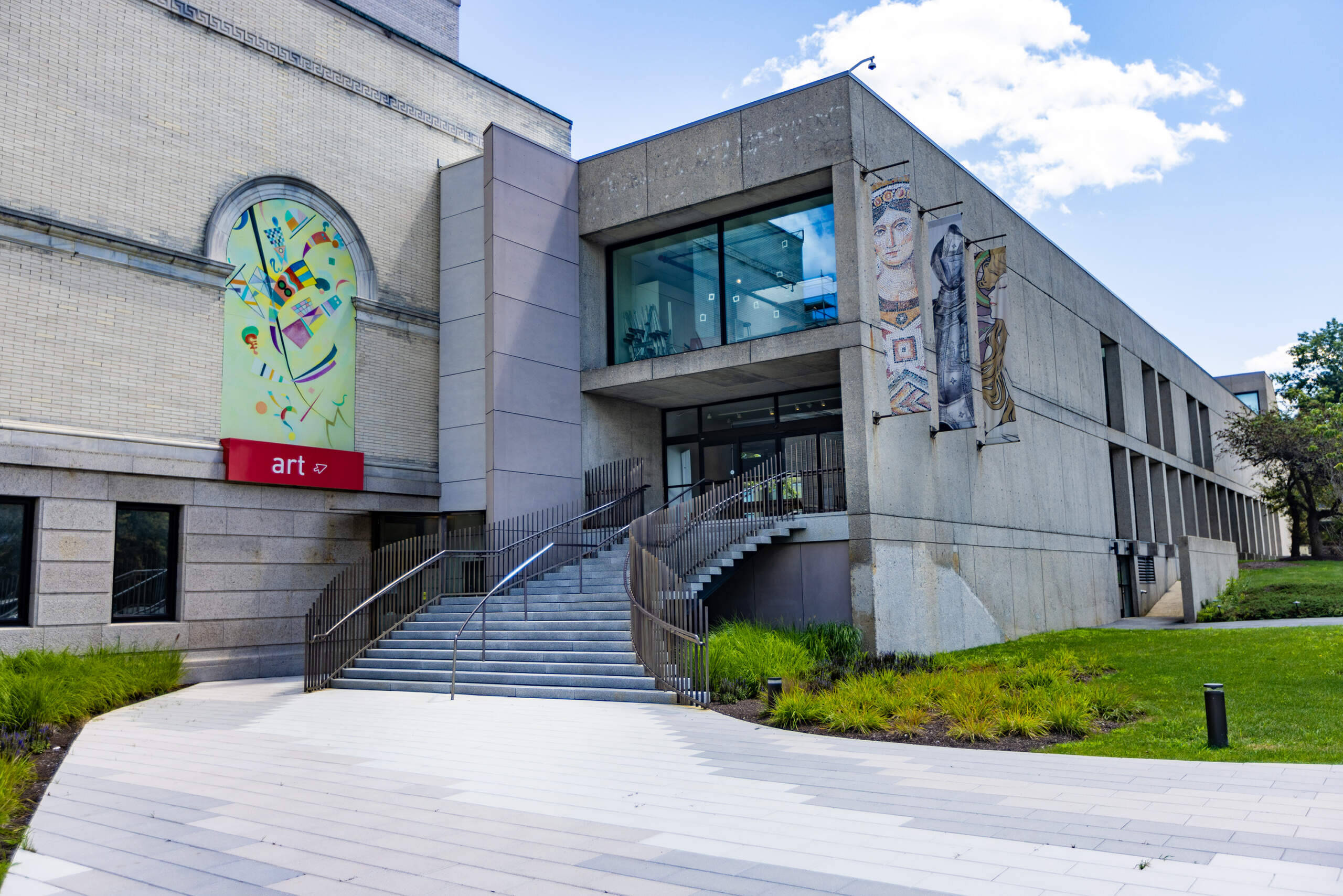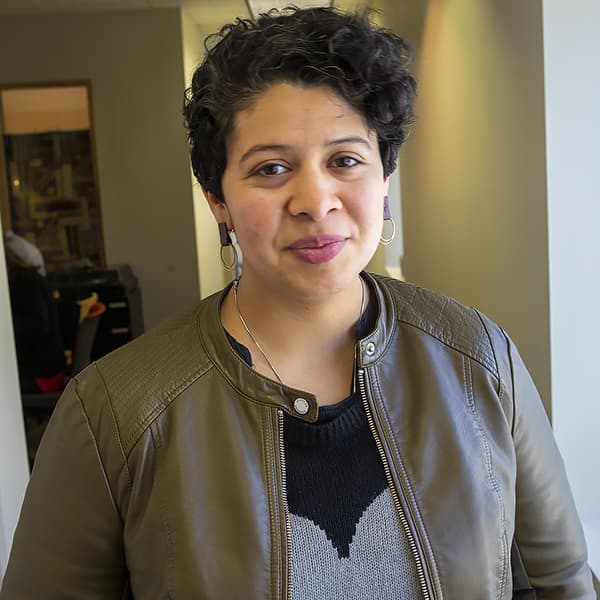Advertisement
Ex-curator sues Worcester Art Museum leaders, alleging discrimination and 'offensive behavior'
Resume
A former curator is suing leaders of the Worcester Art Museum, accusing its director and the head of curatorial affairs of discrimination.
In a 64-page lawsuit filed in Worcester County Superior Court last month, Rachel Parikh alleges she was “mocked and ridiculed because she is a brown-skinned South Asian” Indian woman and “subjected to a hostile and offensive work environment.” She resigned from her job as associate curator of the arts of Asia and the Islamic World last fall.
In the civil lawsuit, a lawyer for Parikh detailed a slew of damning allegations against Director Matthias Waschek, as well as Parikh’s supervisor, Claire Whitner. The complaint alleges Parikh endured “racism and unwelcome and offensive behavior” on multiple occasions, including while she worked inside the museum and attended social gatherings at Waschek’s invitation, and as she sought to report the alleged incidents. The suit also names four members of the board that oversees the museum as defendants.
In May of 2022, the museum hired an outside consultancy firm, LAM & Associates, to investigate Parikh’s claims of harassment and retaliation. In the firm’s final report delivered in July — a copy of which was included in Parikh’s complaint — the authors said its investigator, Laurie Margolies, could not substantiate Parikh's claims with other colleagues, but found her statements “credible.”
Parikh quit two months later, saying in her notice that the museum failed to uphold its own policies, according to the complaint.
"The Board had endorsed and approved the discriminatory and retaliatory behavior in complete disregard of Dr. Parikh’s rights by failing to take her seriously, and refusing to hold Mr. Waschek accountable even though the outside investigator had concluded that Mr. Waschek’s behavior was completely unacceptable,” the complaint reads.
After the report's release, the museum board required Waschek to undergo "further training and efforts to increase DEIA efforts at the Museum," according to documents provided to WBUR.
Parikh, who is an expert in South Asian and Islamic art with a focus on works on paper as well as arms and armor, told WBUR that she left the art she loved because she had lost faith in museum leadership.
“... But the day-to-day was incredibly difficult, because I was constantly on edge. I was just waiting for a comment to be made or something to happen.”
Rachel Parikh
“I buried myself in my work, because I really enjoy being a curator. I made that commitment to my position and especially as a curator of Asian art or non-western art, to me championing that kind of material — in a western institution and in the United States — is incredibly important,” she said in an interview. “... But the day-to-day was incredibly difficult, because I was constantly on edge. I was just waiting for a comment to be made or something to happen.”
Madeline Feller, a museum spokesperson, said in a statement that the museum is aware of the lawsuit and “remains committed to providing a workplace where everyone is treated with dignity and respect.”
“A staff member reported incidents that they believe violated our anti-harassment policy. We responded by following reporting protocols and retaining a third-party to conduct a thorough investigation,” the statement said, adding, “We look forward to addressing these claims through the legal process.”
Parikh holds a Ph.D. in the history of art and architecture from the University of Cambridge in the United Kingdom and previously worked at the Art Institute of Chicago, the Metropolitan Museum of Art in New York and Harvard Art Museums. Parikh’s lawyer described in the complaint that Whitner, director of curatorial affairs and curator of European art, refused Parikh’s request to hire her under the “associate” title because “it would not be ‘fair’ ” to a colleague the complaint describes as a “white woman” with the “assistant” title. Parikh’s lawyer said in the complaint that this did not make sense to Parikh, as she had about twice as many years of experience as her peer.
She accepted the job anyway, the complaint noted, attracted to the museum's unique and robust collection of medieval arms. (On Instagram, Parikh has more than 34,000 followers, where she shares information and photographs about arms and armor.) The museum also gave her the opportunity to renovate its Asian art galleries, which she said had not been updated since the early ‘80s.
Parikh was promoted to associate curator in January of 2022. Later, other curators were hired with less experience and given the “associate” title, the complaint claims.
According to the complaint, Whitner, at Waschek's request, allegedly also told Parikh about a year after she was hired to “look the part” of a curator, suggesting she “zhush up” her look and “wear makeup, perhaps little earrings, a necklace, a ruffled blouse” to work. The complaint said that “WAM’s employee handbook does not require curators to do any of the things that Ms. Whitner stated she and Mr. Waschek felt Dr. Parikh must do.”
In an email, Whitner said of the lawsuit: “I believe the museum did its due diligence in investigating Dr. Parikh’s claims. She did not bring any of these allegations to me until the day she resigned.”
“I believe the museum did its due diligence in investigating Dr. Parikh’s claims. She did not bring any of these allegations to me until the day she resigned.”
Claire Whitner, museum director of curatorial affairs
Parikh’s accusations in the complaint extend beyond alleged incidents inside the museum walls. They include alleged comments made over brunch with Waschek and his husband in November of 2021 and at a dinner at the pair’s home in March of 2022.
In the complaint and in an interview with WBUR, Parikh said both men asked intrusive questions about her cultural heritage, referencing a ‘90s British television show that featured an Indian family. More than once, Parikh alleges, the two white men imitated an Indian accent while discussing the show.
A spokesperson for the public relations firm Rasky Partners shared a statement from Waschek in an email, in which he calls the accounts of his and his husband’s actions in the complaint “patently false” and “staggering.”
“I have been dismayed by the false allegations that have been made in this lawsuit and the homophobic tropes that are invoked,” the statement said. “I have worked hard over the last thirty plus years to build a reputation of professionalism and integrity. As a gay man who has experienced discrimination first-hand, I have always held DEAI [diversity, equity, accessibility and inclusion] issues as a core value, and have sought to do my best to eliminate discrimination from the workplace and build a culture of inclusivity.”
Parikh called her work experiences mentally exhausting and said the stress took a physical toll.
“It took me back to a place where I was, you know, a kid and being bullied for being brown, basically,” she said. “So it was basically reliving the trauma that I've had that I've been trying to work through as an adult. It felt like this kind of tidal wave that just hit me out of absolutely nowhere. It brought back so much of the feelings of anger and hurt and disappointment.”
In addition to the lawsuit, Parikh also filed a claim with the Massachusetts Commission Against Discrimination in October of 2022. In response, a firm representing Waschek submitted a "position statement" in late January requesting that MCAD "reach a finding of Lack of Probable Cause."
"To be sure, Dr. Waschek strongly disagreed with the Board’s decision to impose [training] requirements on him as a result of Dr. Parikh’s baseless complaints," the firm added in the statement.
Margolies, the investigator tasked with examining Parikh's claims, interviewed several museum employees and found “little trust that employees felt they were protected and would be kept safe.” The July 2022 report based on her work said she observed that “loyalty seemed to trump honesty or memory” and that the allegations Parikh described “fit a pattern that began prior to her arrival at the museum.”
“Throughout my interviews I heard of inappropriate incidents occurring at which senior staff members were present, said nothing, and nothing was done,” she wrote. “It was reported that there is no accountability for behaviors, and no safety for staff, particularly women. There has been discomfort reporting concerns for this reason and because there is fear of retaliation.”
"It does not feel as though the museum got the message from the other case that I had handled that it is required by law to maintain a working environment free of discrimination and retaliation."
Lana Sullivan, Parikh's attorney
Feller, the museum spokesperson, said the complaint reveals “confidential HR information,” which puts the museum in a position “where the only way to set the record straight would be to disclose confidential and private information in a manner that would violate our own policies and compromise the privacy of current and former employees.”
Parikh’s attorney, Lana Sullivan, said this lawsuit is her second case against the museum and Waschek. In the previous one, filed in 2015, the museum settled.
“The same individuals are largely involved in this,” Sullivan said. “It does not feel as though the museum got the message from the other case that I had handled that it is required by law to maintain a working environment free of discrimination and retaliation. So it's just unfortunate that this type of behavior is recurring again.”
This segment aired on August 17, 2023.
